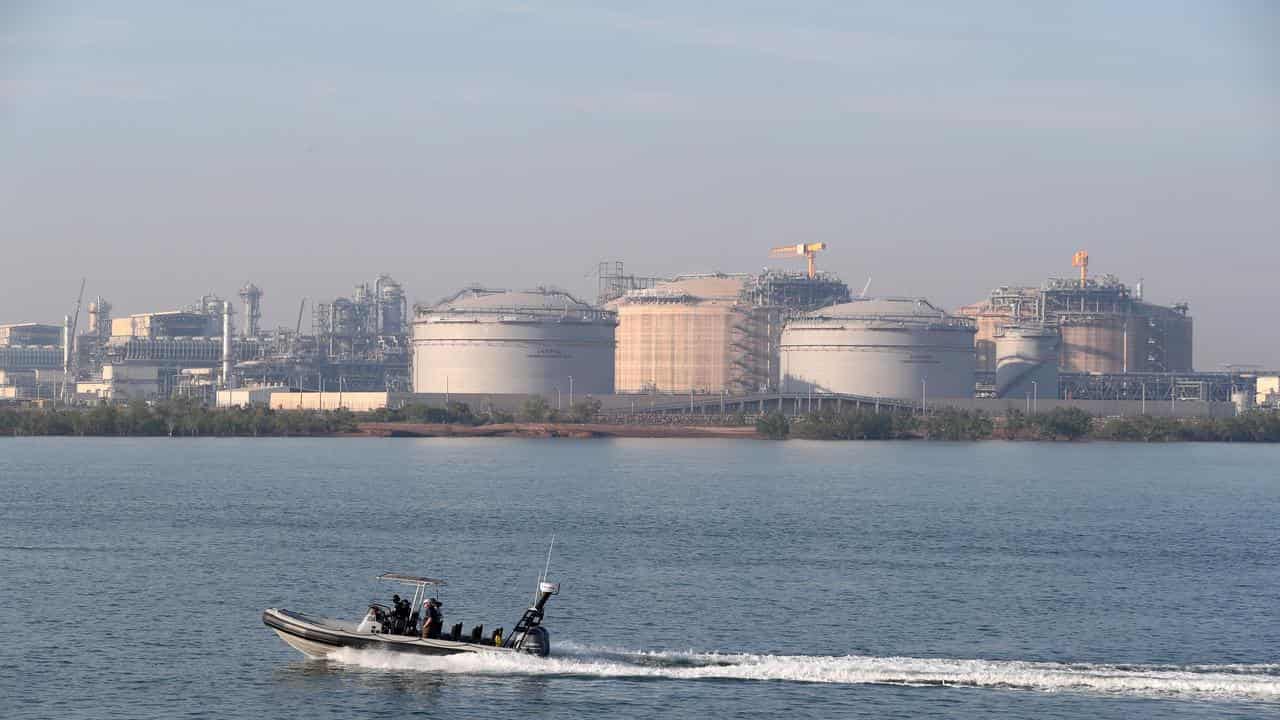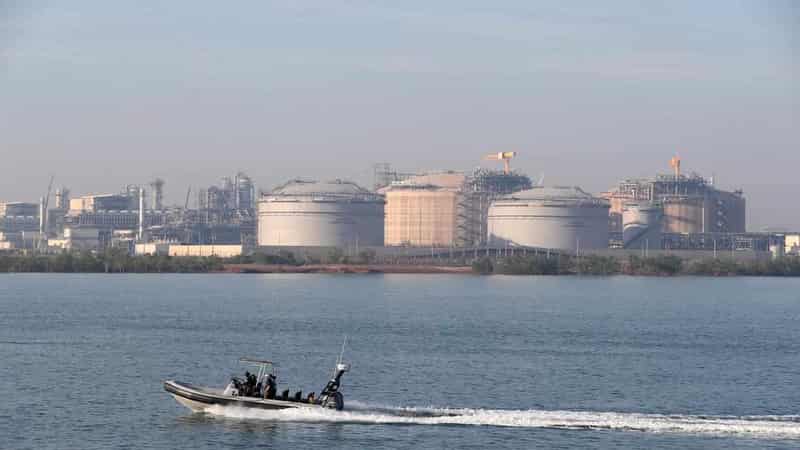
Deeply concerned doctors in the Northern Territory have issued a warning about the health and wellbeing risks of fossil fuel projects.
Scientific research by the University of Sydney released on Monday points to harm to physical and mental health and interference in local ways of life.
Areas of "extreme concern" include the risks to biodiversity, water and food security from oil and gas operations, including contamination risks from the many chemicals that are used.
The "extensive disruption" of life near oil and gas fields and their sprawling infrastructure takes a physical, social and spiritual toll on locals, according to the report.
NT pediatrician Louise Woodward commissioned the research on behalf of a group of doctors concerned about proposed shale gas development of the Beetaloo Basin and expansion of processing in Darwin Harbour.
"We shouldn't be putting populations in harm's way in order to make money - that makes no sense," Dr Woodward told AAP.
"The health risks by far outweigh the economic benefits," she said.
Dr Woodward said Darwin already has high rates of asthma because of "terrible" air quality most of the year from bushfire smoke, and an increasing number of dangerous heat days due to climate change.
"Combine that with the pollution coming off the processing plants we've already got and the effect is cumulative," Dr Woodward said.
For people living near the gas facilities and at risk of lung disease, including those with asthma or bronchiectasis, their disease progression is much more severe than if they lived in areas where the air was healthy to breathe, she said.
Bronchiectasis, recorded at higher rates in the NT population, breaks down the airways and causes shortness of breath, chest pain and sufferers - adult and children - often cough up blood and mucus.
"We already have some of the highest rates of pre-term delivery, low birth weights and pregnancy complications in the country," she added, cautioning against adding another risk factor.
The report found higher hospitalisation and death rates from heart attacks, heart failure, respiratory diseases and some cancers in locations with similar projects.
Multiple studies have detected higher risk of spontaneous abortion, severe birth defects and risk of acute lymphoblastic leukaemia, the report found.
Higher injury and fatality rates from more trucks on the roads, higher rates of depression and anxiety and higher prevalences of sexually transmitted infections have been linked to the impacts of oil and gas operations on home and community life.
The report also highlights the "cultural and spiritual harms" reported by Aboriginal Australians in the alleged poor adherence to the right informed consent for operations on their traditional lands.
A warning about the risks of sexual violence suffered by First Nations peoples, citing North American studies, is also documented as being associated with oil and gas activities.
"These risks have been completely ignored in all government assessments of potential consequences borne by Australian people," the report said.
The report, The risks of oil and gas development for human health and wellbeing: A synthesis of evidence and implications for Australia, comes as governments accelerate approvals for an export industry around Beetaloo gas.
"The gas projects have direct impacts to the populations of people living around them," Dr Woodward said.
"And there's also the indirect health impact of the exacerbation of climate change that these projects will cause."
The industry also uses vast quantities of fresh water that is already scarce in arid areas.
A cocktail of additional chemicals form in the atmosphere, including formaldehyde, particulate matter from aerosols and ground level ozone, which travel long distances damaging health and agriculture.









